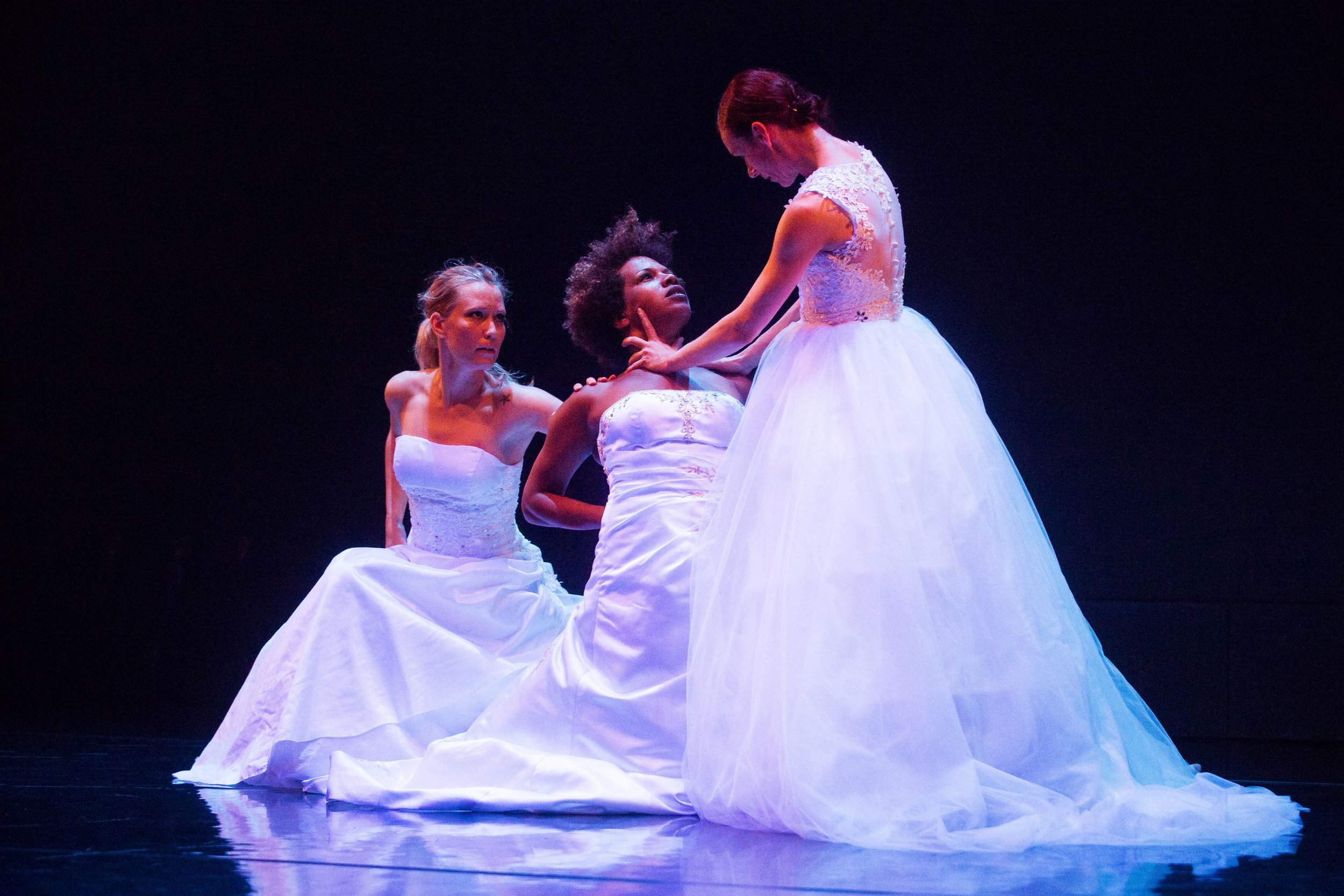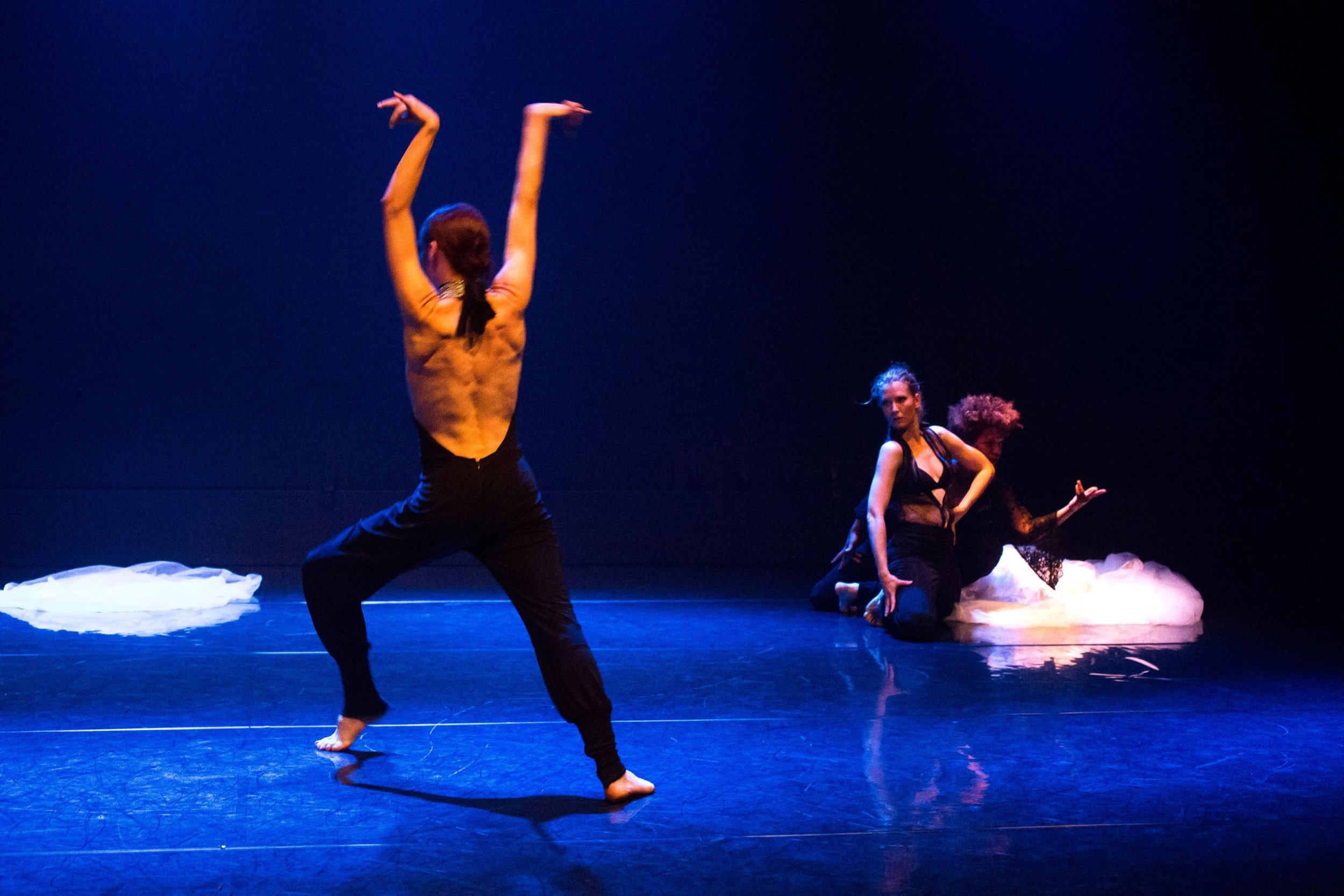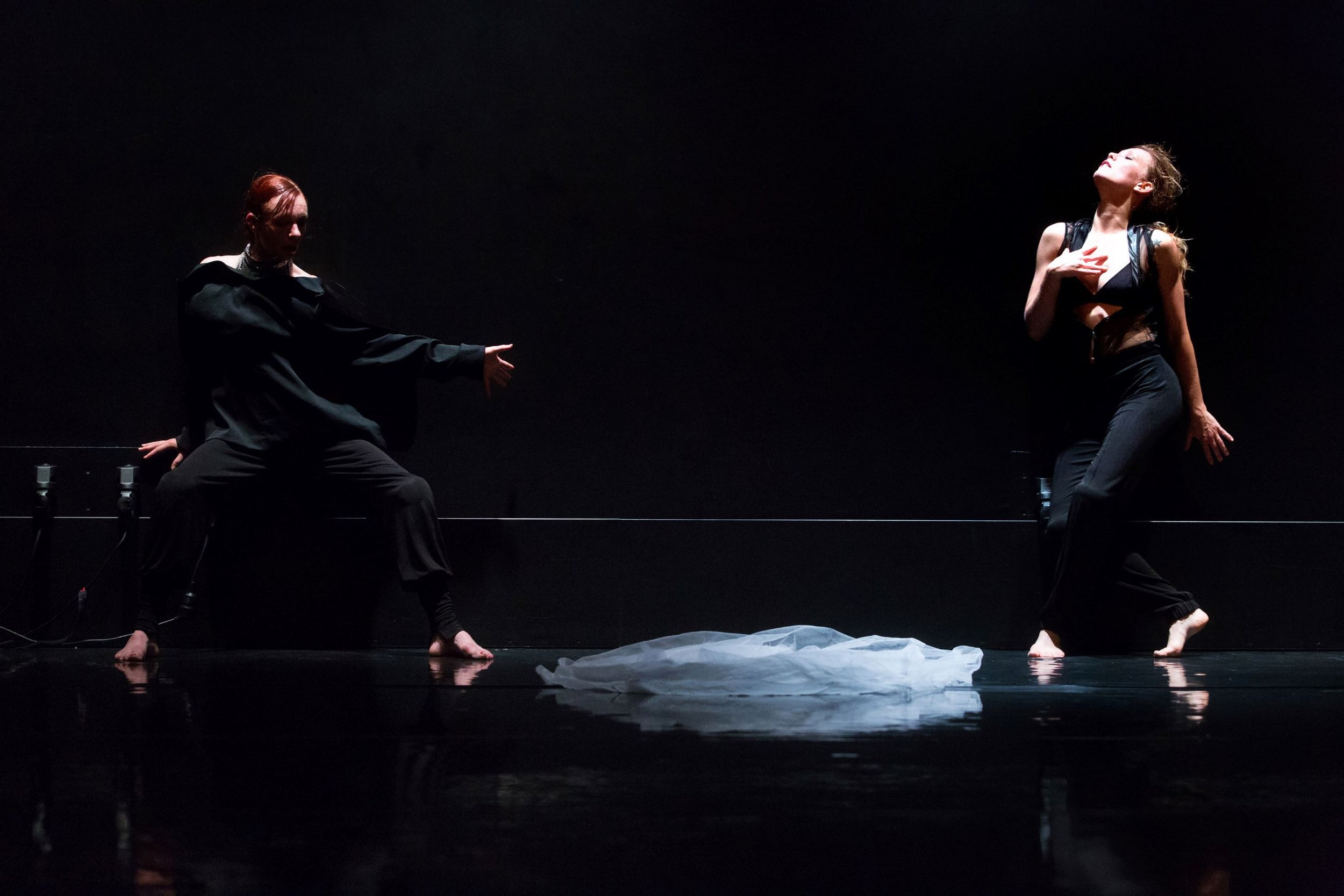Rosana Hribar / Nick Upper
TOBELIJA / TOBELIA - PREDSTAVA ZARADI BOLEZNI ODPADE / THE PERFORMANCE IS CANCELED DUE TO ILLNESS
plesna predstava po motivih drame Ljubomirja Đurkovića / a dance performance based on the motifs of a drama by Ljubomir Đurković
Koreografija in izbor glasbe / Choreography and Music Selection: ROSANA HRIBAR
Izvajalke in soustvarjalke giba / Performers and Co-creators of Movement: ROSANA HRIBAR, MAŠA KAGAO KNEZ, URŠA RUPNIK
Režija in scenografija / Direction and Set Design: NICK UPPER
Dramaturgija / Dramaturgy: ANDREJA KOPAČ
Oblikovanje luči / Lighting Design: ALJAŽ ZALETEL
Glasba / Music: Bocet la Înmormântare Stupca (Ciprian Porumbescu) Suceava, Sabu Martinez: Sabu’s Jazz Espagnole Disc 1, TRAG: Jovano, Jovanke (instrumental) – (LIVE) Banjaluka 2013, Vasko Atanasovski, Vlatko Stefanovski, SPSCO: Jovano, Jovanke, Balkan Blues (Varius Artists), Disc 1: Vasile Pandelescu: Dela Hulbesti (Si Voce), Çiğdem Taştan: Jovano, Jovanke
Izdelava kustumov / Costume Make: KATARINA ŠKAPER
Producentka / Producer: ŽIVA BRECELJ
Produkcija / Produced by: PLESNI TEATER LJUBLJANA
Koprodukcija / Co-produced by: STUDIO 25
Zahvala / Thanks to: Poročna Obleka d.o.o., Vasko Atanasovski
INFO. / REZ.: 041-707-475, ptl@mail.ljudmila.org, Moje karte
Vstopnice / Tickets: 12/8€ (dijaki, študenti, upokojenci / scholars, students, seniors), predhodna rezervacija ali uro pred predstavo v gledališču / prior reservation or an hour before the performance at the theatre
Program Plesnega Teatra Ljubljana sofinancirata Ministrstvo za kulturo RS in Mestna občina Ljubljana, Oddelek za kulturo / The programme of Plesni Teater Ljubljana is subsidized by the Ministry of Culture RS and Municipality of Ljubljana, Department for Culture
Foto / Photo: NADA ŽGANK
O predstavi
O ženskah, ki so preveč ljubile [istega] moškega, ki ga več ni …
Starodavni običaj tobelij, žensk, ki v visoko patriarhalni [balkanski] družbi prevzamejo moško funkcijo, ko iz različnih razlogov ni več moških, so si kot motiv predstave vzele koreografinja Rosana Hribar in soustvarjalke Urša Rupnik in Maša Kagao Knez, ki so črpale iz emocije »življenja brez moškega«, ki pripada tako nekdanjemu kot sedanjemu času.
Zgodba, prepletena z izgubo ljubljene osebe, se lahko danes dogaja kjerkoli; gre za urbano tragedijo o treh ženskah dveh generacij, usodno zaznamovanih s tragično izgubo ljubljenega; bodisi sina (Vida: Rosana Hribar), bodisi brata (Ana: Urša Rupnik) bodisi moža (Bojana: Maša Kagao Knez), ki so poslej obsojene na življenje druga z drugo in z odsotnim moškim, s katerim je [bila] vsaka intimno povezana.
Plesna predstava Tobelija gradi na večnih motivih, ki se pojavljajo na eni strani v želji in hrepenenju »pripadati« in po drugi strani v ujetosti v okolje, brezizhodni situaciji, strasti in jezi, žalovanju in hrepenenju, zaničevanju in usodni prepletenosti ter obsojenosti na večno vračanje v preteklost. Moški je umrl. Ostal je grob in občutek izgube, zapostavljenosti in grenkobe, ki ga hrani predvsem strah pred vsem, kar preizprašuje trdna prepričanja.
Tobelija je podoba sveta, v katerem se naglo spreminjajo vrednote in ideali, medtem ko vprašanje ženske emancipacije postaja vse bolj aktualno tako v luči izgubljanja (že) priborjenih pravic žensk kot spreminjajoče se identitete (odsotnih) moških. Tobelija je vzvratno ogledalo razbitih identitet človeštva in slika o uničujoči patriarhalnosti sveta.
About the performance
About women who overly loved the [same] man who is gone …
Choreographer Rosana Hribar and the co‑creators, Urša Rupnik and Maša Kagao Knez, explored the motif of the ancient custom of tobelias, women in a highly patriarchal [Balkan] society who, once the men were gone for various reasons, assumed their role. They drew on the emotion of “life without a man”, which belongs to both the present and the past.
A story intertwined with a loss of a loved onecould be happening anywhere today; it is an urban tragedy about three women across two generations, marked by the tragic loss of their loved one – either son (Vida: Rosana Hribar), brother (Ana: Urša Rupnik), or husband (Bojana: Maša Kagao Knez) – who are thereafter destined to live with one another and the absent man, with whom each of them had been intimately connected.
The dance performance Tobelia is based on timeless motifs that appear in the wish and desire “to belong” on the one hand, and in the entrapment in the environment, hopeless situation, passion and anger, mourning and yearning, contempt and fateful intertwining, and condemnation to eternal returning to the past on the other. The man had died. What remains is the grave and a sense of loss, neglect, and bitterness, fueled mainly by fearof everything that questions firm beliefs.
Tobelia is an image of the world in which values and ideals are changing rapidly, while the question of women’s emancipation is becoming increasingly important – both in light of the loss of the rights (already) acquired, and the changing identity of the (absent) men. Tobelia is a rearview mirror of the broken identities of humanity, an image of the devastating patriarchy of the world.
Odlomek iz kritike
"Gib in celosten estetsko dovršen performans… sama zgodba, fuzija čustev, menjavanje oblačil je plesu, plesni predstavi dalo občutek dinamičnosti, fluidnosti, predvsem pa moč, ki je ni mogoče opisati z besedami." Nina Žnidaršič, Parada plesa
Excerpt from press review / critic
"The movement and performance are aesthetically perfected, the story itself, the fusion of feelings, the changing of clothes gave dance and the dance performance a sense of dynamism, fluidity, and above all power that cannot be described in words." Nina Žnidaršič, Dance Parade




